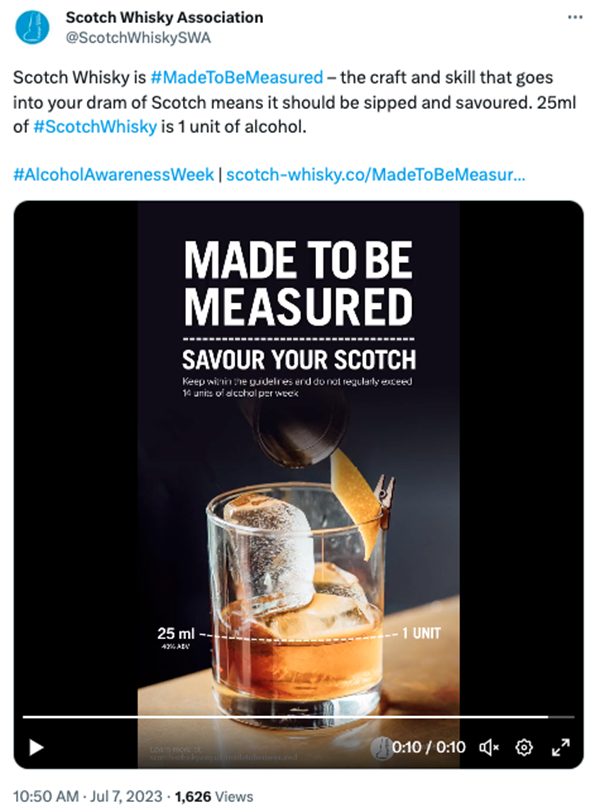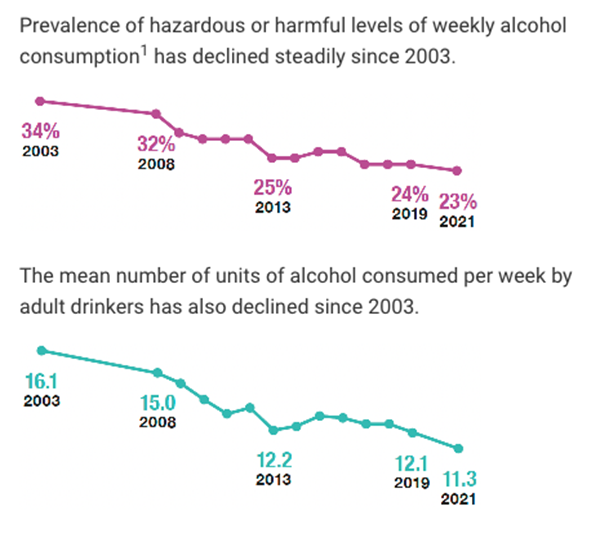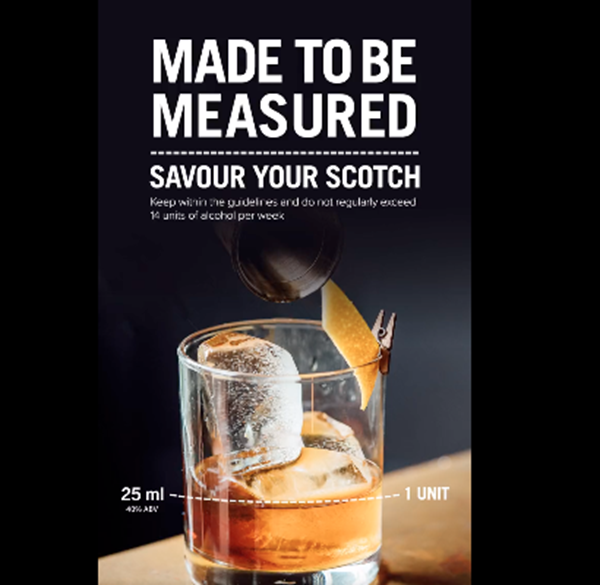Rebuilding Scotch's Social Contract
In its bid to stave off ever more regulation, the whisky industry is doing everything it can to promote responsible drinking, but its critics mistrust its motives, as Ian Fraser reports ...
The Scotch Whisky Association’s “Made to be Measured” campaign comes at a critical point in the industry’s battle to persuade its critics that it means business when it comes to promoting responsible drinking.
The campaign, launched in May, is focused on raising awareness of the alcoholic content of drinks and the government's recommended maximum number of “units” per week, among 25-44 year-olds in Scotland – the majority of whom are hazy about what constitutes a “unit” and how many they should be consuming.
An SWA spokesperson said the campaign, appearing on commercial radio in Scotland and on Instagram and Facebook, and already seen by over 500,000 people, “aims to educate consumers, and lead to more responsible choices by those who choose to drink alcohol.”

The industry, led by the SWA, has made determined strides when it comes to promoting responsible drinking, tackling underage drinking, preventing drink-driving and dissuading vulnerable groups from drinking over the past two decades. The pivotal development was the launch, in 2005, of its Code of Practice for the responsible marketing and promotion of Scotch whisky. This detailed instruction manual, backed up by the threat of sanctions, has already been through five editions, and today stretches to 33 pages.
Related measures have included the incorporation of advisory panels and Drinkaware sections on the rear labels of Scotch whisky bottles (showing, for example, how many “units” are in a bottle and advising women not to drink if pregnant); the 2013 launch of the Scotch Whisky Action Fund which funds and collaborates with projects aimed at tackling alcohol-related harms in communities across Scotland; and the requirement for visitors to websites of drinks brands and distilleries to enter their dates-of-birth before gaining access.
Most recently the SWA is backing the hard-hitting “It Will Cost You” campaign, run by The Scottish Alcohol Industry Partnership, Community Alcohol Partnerships and Police Scotland, which warns against buying alcoholic drinks for minors.
The wider trend towards “drinking less, drinking better”, also known as “premiumization”, is also arguably working in the industry’s favour, distancing Scotch from “session”-style beverages.
However the industry is up against a powerful and credible lobby of medical professionals and public-health charities and NGOs in Scotland, which hasn’t fully forgiven the SWA for the legal challenge it mounted to the Scottish Government’s proposed introduction of Minimum Unit Pricing (MUP) strategy in 2012.
The fact that MUP, finally introduced five years late in May 2018 , appears to have been a success in reducing alcohol-linked deaths has weakened the industry’s hand. A June 2023 report from Public Health Scotland (PHS) claimed that, between May 2018 and the end of 2020, MUP reduced alcohol-related deaths in Scotland by 13.4% - saving around 156 lives per year.
The distrust was palpable when, the day the PHS report was published, Alcohol Focus Scotland’s CEO Alison Douglas declared the apparent success of MUP in reducing alcohol-related deaths showed the government had been right “to face down opposition from the alcohol industry who consistently put their profits above public health.”
The reaction was typical of a public health lobby which is eager to highlight the destructiveness drink can cause, through alcohol use disorder and alcohol dependence, and is driving for ever tighter restrictions. It doesn’t help that the lobby has an array of health-related statistics on its side, including that 1,245 people – 24 people a week – died from alcohol-related conditions in Scotland in 2021, almost as many as died from drug abuse. This equates to 22.3 alcohol-specific deaths per 100,000 people, nearly double the UK-wide figure.
Also PHS released a report in February showing there were 35,187 alcohol-related admissions to Scottish hospitals in 2020-21, equivalent to 611 per 100,000 people (compared to 456 per 100,000 in England).
 Source: The Scottish Health Survey 2021
Source: The Scottish Health Survey 2021
The two sides of the debate were at loggerheads a few months ago over the Scottish government’s consultation on proposed restrictions to alcohol marketing, which it was said would have required the erasure of distillery names from distillery walls and curtailed all forms of sponsorship. The Scottish government-funded Alcohol Focus Scotland accused the industry of “using its power and influence to try to derail marketing restrictions” insisting it should be excluded from having any input into the planned advertising clampdown.
However many in the industry thought the Scottish government's proposed measures were over the top, not least because they were supposedly addressed at limiting harms to young people (16-24-year olds), a group who are drinking way less nowadays.
Things calmed down after Humza Yousaf became first minister in March. On 18 April, after only three weeks in post, Yousaf effectively called a truce, declaring that the highly contentious consultation developed under his predecessor Nicola Sturgeon was being “paused” and that he wanted to “go back to the drawing board” to create new proposals, in partnership with the industry and health stakeholders.
An SWA spokesperson said: “We’re pleased that the Scottish government has committed to working in partnership with the alcohol industry to promote moderation and reduce harmful consumption. The sweeping proposals set out in last year’s advertising consultation would have distracted from that goal and would have caused unnecessary damage to the Scottish economy and society. The first minister has taken the proposals back to the drawing board and we look forward to working with the government on revised proposals in due course.”
However there is no room for complacency. The industry needs to be vigilant and to be seen to be continuously developing responsible drinking initiatives that its critics cannot dismiss as window dressing.
The industry also needs to be careful to avoid own-goals, such as occurred with MUP. If it does not, it could risk suffering the same fate as the tobacco industry, which in 2002 was banned from engaging in any form of advertising, and whose products have essentially had pariah status since 2009, when all forms of point-of-sale displays were outlawed in the UK.

Ian Fraser is a financial journalist, a former business editor of Sunday Times Scotland, and author of Shredded: Inside RBS The Bank That Broke Britain.




